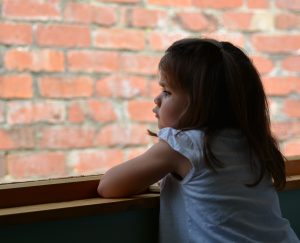New law aims to improve services for young children with disabilities
By Sharita Forrest Education Editor U of Illinois News — November 13, 2022
Under Public Act 102-926, children up to age 3 who are involved in the state’s child welfare system are now automatically eligible for early intervention services such as speech or behavioral therapy.
Trauma, neglect and abuse can have significant long-term effects on young children’s mental health, behavior and ability to learn, according to the Substance Abuse and Mental Health Services Administration.
Under a new Illinois law, children up to age 3 who are involved in the state’s child welfare system are now automatically eligible for early intervention services such as speech or behavioral therapy that have the potential to mitigate the effects of these adverse experiences and establish the foundations for healthy development.
Hailed as a win for young children with disabilities and their families, Public Act 102-926 was the culmination of about seven years’ work by a broad coalition of supporters, said Catherine Corr, a professor of special education at the University of Illinois Urbana-Champaign.
Corr was a member of a special working group that spearheaded that effort. The working group was created by the state of Illinois’ Early Learning Council, a public-private partnership that coordinates services for Illinois children from birth to age 5.
Carie Bires, the managing director of the Illinois policy team at the nonprofit Start Early, was part of that working group, which included researchers, early childhood professionals, parents and public agencies’ staff members. The Chicago Coalition for the Homeless, Children’s Home + Aid and the Illinois Action for Children organization were among the key partners on the project.
The working group developed several of the proposed policies codified in the law, signed by Gov. J.B. Pritzker in May, streamlining the process for obtaining services for children who need them and strengthening the cross-collaboration between the state’s child welfare, early care and learning agencies.
“We’re really excited about this policy — it’s a big first step,” said Corr, whose interest in public policies benefiting children with disabilities germinated while working on her doctoral dissertation at the university. That research was supported by a Doris Duke Fellowship for the Promotion of Child Well-Being.

Special education professor Catherine Corr
(Photo by Fred Zwicky/University of Illinois News)
“The fellowship had a component of thinking about not only how your research will impact the research community, but what kind of policy change it could have,” Corr said. “And because I was forced to think about that from the onset, it made for this collaborative process where we’ve been able to create this pipeline of research-policy partnerships.”
In addition to early intervention services, the legislation also extends automatic eligibility in the state’s Child Care Assistance Program to two important family groups in Illinois – youths in foster care who are parents, as well as family caregivers who are part of the Illinois Department of Children and Family Services Extended Family Support Program.
Applicable regardless of income, employment or education status, these automatic eligibility guidelines “have the potential to remove the red tape and barriers that exist between the state’s early intervention, child care and child welfare systems,” Bires said.
“These children and families have very complex lives with a lot of competing demands. And the individuals working within those systems are also dealing with a lot of complexity and competing demands. The new law reduces the number of steps involved and simplifies the path” for obtaining services, she said.
As part of its yearlong work on the project, the Early Learning Council’s working group sought input directly from parents about their experiences obtaining early childhood services for their children, which lent valuable insight on the obstacles that families often encountered, Corr said.
Under the new law, DCFS is required to reimburse child care providers at the same rates as those in the Illinois Department of Human Services’ Child Care Assistance Program, said Bires, Corr and special education graduate student Mia Chudzik during a presentation at the Council for Exceptional Children’s Division for Early Childhood conference, held in Chicago in September.
This parity in child care reimbursement rates is expected to encourage more providers to accept reimbursement from DCFS and expand the number of child care options for families who are involved with the Illinois child welfare system, the team said.
Solving these types of complex social issues requires a comprehensive approach that connects research, policy and data to develop the best available approaches. Feedback loops are needed as well to accelerate progress on these problems, the team said in its presentation.
“I wish we had stronger feedback loops that weren’t dependent on people like Catherine and I knowing each other,” Bires said. “It’s almost happenstance that we got connected, and it’s such a lost opportunity. For an institution like the U. of I. that has such amazing research coming out of it, how are we making sure that those findings are getting back to policy professionals, communities, other systems leaders?
“Too often, we don’t have the real-time data we need to inform the best policy decisions. Improvements to our data systems are underway, but this is where research like Catherine’s comes in — it helps us fill in the gaps.”
Much work remains to be done on implementing the provisions of the law, Bires said. Among the biggest challenges ahead are the existing workforce shortages in the child care and early intervention fields, especially for service coordinators.
“We’ve been trying really hard for many years to increase our state’s investment in the early intervention program,” Bires said. “I think it’s critical that we do that. The program was cut in the early days of the pandemic but restored last year. This is one of the most cost effective and just plain effective programs that we run, and it deserves way more than we’re giving it. It’s transformative in families’ lives.”







